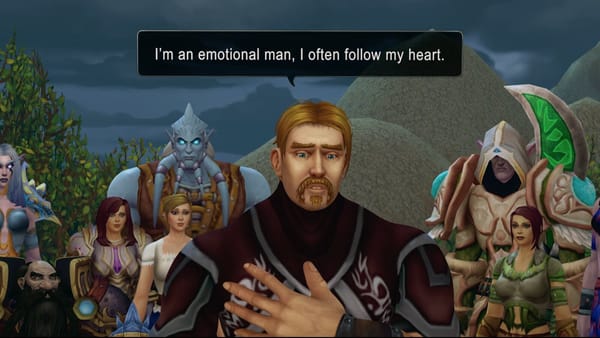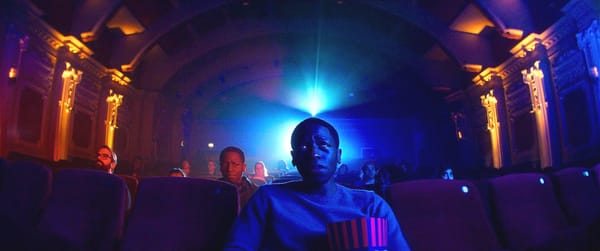Oscar Doc Shorts 2024: The Good, The Great, the Meh
A close look at the five nominated films in the Documentary Short category -- one of them a winner no matter who wins.
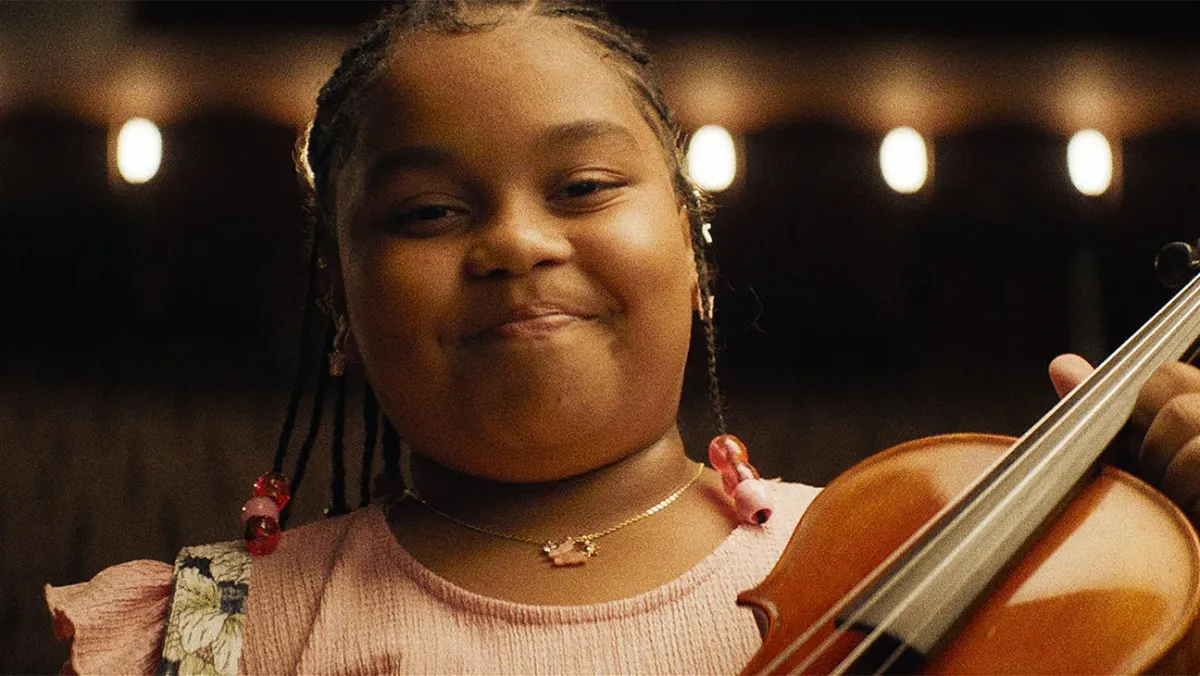
Note to readers: A reminder that tomorrow night, Thursday March 7, at 7 p.m. I’m hosting a Zoom conversation to pre-game the Oscars for English for New Bostonians, a non-profit organization that ensures access to high-quality English classes so that adult immigrants have the ability to pursue their aspirations and contribute to the Commonwealth. (The organization's mission statement is here.) Tickets are $50 and all proceeds go to ENB; you can register for the Oscar talk here. Who will win? What's the inside line? Who will slap who? It'll be a fun evening for a worthy cause.
Yes, the Oscars are (finally) this coming Sunday night, and just because I no longer write for the Boston Globe doesn’t mean I’ve stopped putting out an annual list of Academy Award predictions, if only from muscle memory. I do enjoy the process: It gives me an excuse to cast a beady/appreciative eye over the categories, to point readers to films and performances they may have overlooked, and to call BS where BS is called for. My prediction cheat sheet will be posted Friday; until then, I’ll finish up my sojourn through the short film categories by focusing on the documentaries.
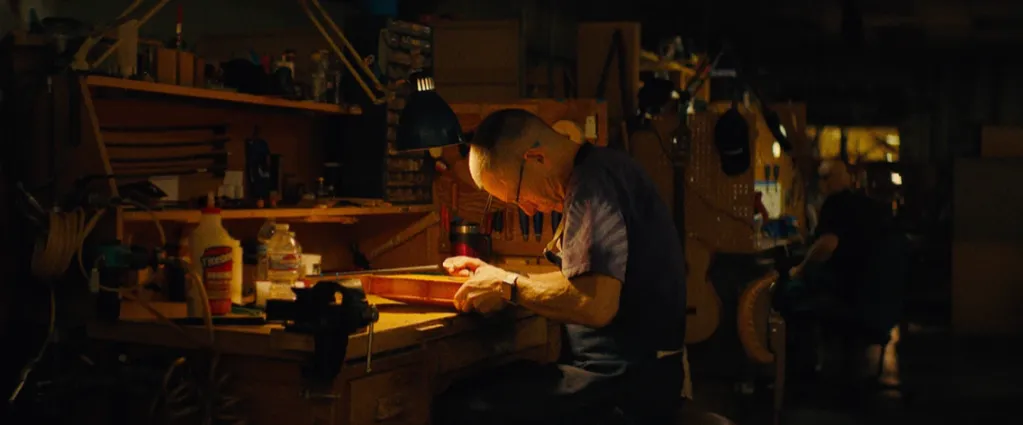
Of which there is one clear stand-out, and if it doesn’t win, then something is screwy somewhere. “The Last Repair Shop” (⭐ ⭐ ⭐ ⭐) is a heartbreaker and an uplifter about a hospital for musical instruments in Los Angeles. The city’s Los Angeles Unified School District is one of the few public school systems remaining in America that provides instruments – over 80,000 of them – to students free of charge, and the craftspeople who work in a downtown warehouse repairing violins, tubas, clarinets, and pianos that have seen a lot of living over the years are the subject of Ben Proudfoot’s and Kris Bowers’ 40-minute documentary. Actually, the kids are the focus of what’s going on here – the repairmen and -women of the shop acknowledge that they’re not just fixing instruments but buoying and rescuing young lives, and the delightful interviews with students confirm this. But “The Last Repair Shop” is not only about repairing children’s instruments or their hopes for the future but the lives of the craftspeople who work there. The meat of the film is their backstories: A gay man’s long-delayed coming out, a Mexican single mother’s struggle to make it in America, an easygoing dude who picked up a guitar as a kid only to wind up touring the world and opening for Elvis – he works at the warehouse as a way of giving back – and an Armenian immigrant who fled ethnic violence in Azerbaijan to become a piano tuner and the repair shop’s foreman.
It's not just their narratives but the simple, head-on way they’re presented that may have you snuffling through tears. “The Last Repair Shop” is an exemplary model of documentary storytelling, full of heart but never sappy, undergirded by smart, unobtrusive cinematography and editing, graced with a lyrical score, and, in general, beautifully directed. It’s one of those movies that makes you feel better about the world, and God knows we could use more of those. A co-production of the Los Angeles Times, the film’s streaming on Disney+ and available on YouTube. In fact – what the hell – here it is:
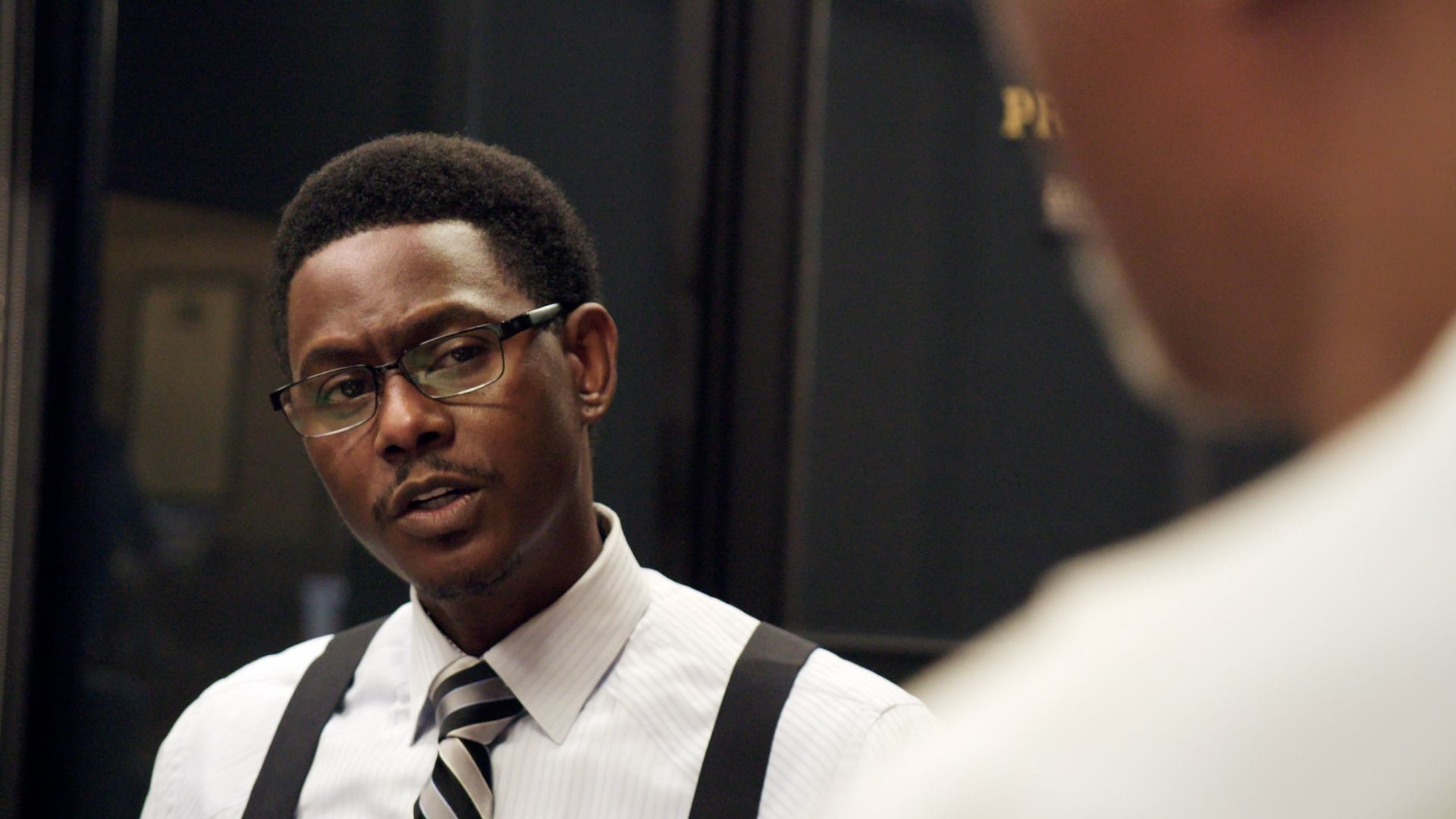
If “The Last Repair Shop” weren’t in this horse race, I’d say the Oscar should go to “The Barber of Little Rock” (⭐ ⭐ ⭐ 1/2), another doc about people providing hope where hope is in short supply. In this case that person is Arlo Washington (above), a mild-mannered superhero whose Washington Barber College has licensed over 1,500 haircutters over the years, and whose People Trust is a non-profit credit union that runs out of a converted shipping container in a parking lot and provides business loans for people who’ve been turned down by banks. Which in Arkansas usually means they’re Black. Co-directors John Hoffman and Christine Turner underscore this country’s racial wealth gap by capturing the half of Little Rock cut off by Interstate 630 – the half with no banks or services but plenty of boarded up houses – and they show the need and the pride that people like Arlo Washington deal with every day and have dedicated their lives to addressing. In their struggle to open a business or buy a house, the people he serves are reaching for something America has steadfastly refused to grant them: Ownership. A fine film, it’s co-produced by The New Yorker and can be seen at the magazine’s website with an accompanying article, or on YouTube:
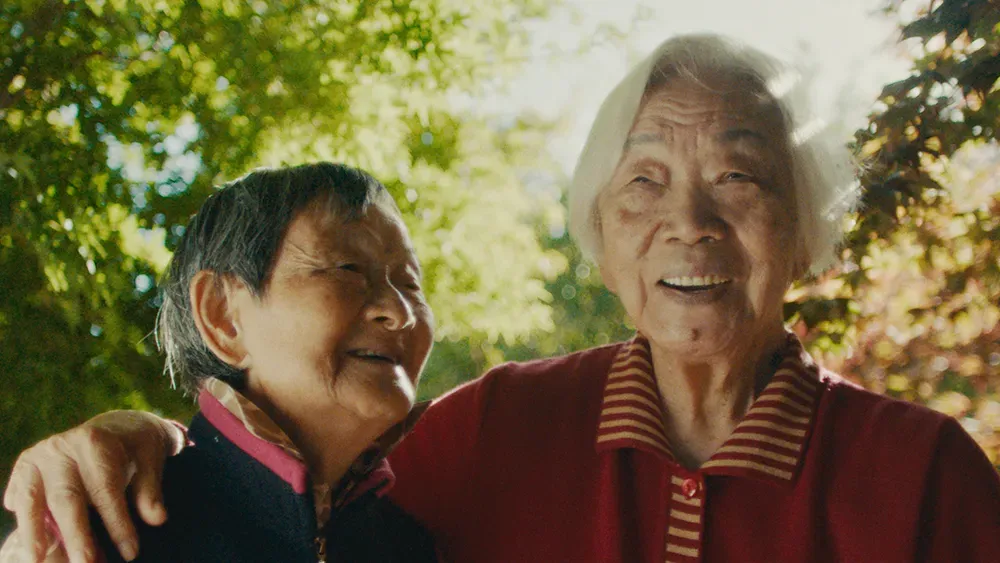
“Nai Nai & Wài Pó” (⭐ ⭐ ⭐, streaming on Disney+ and Hulu) is pretty straightforward, being Sean Wang’s portrait of his two grandmothers, 83-year-old Chang Li Hua and 94-year-old Yi Yan Fuei – two feisty survivors who have seen a lot of history, known a great deal of struggle, and now share an apartment like a geriatric comedy act. The short is sweet and ingratiating, nothing more but certainly nothing less. S. Leo Chiang’s “Island In Between” (⭐ ⭐ 1/2) is a meditation on personal and national belonging that focuses on the islands of Kinmen, which are part of Taiwan but sit ten miles off the coast of Mainland China. Chiang looks to the past – the Taiwan Strait Crises of the 1950s – and to the uncertain political future, with his own status as a rootless multinational part of a brooding present. The film’s heartfelt but diffuse, stranded between journalism and memory play. A product of The New York Times’ Op-Doc series, it can be viewed at the Times website or on YouTube:
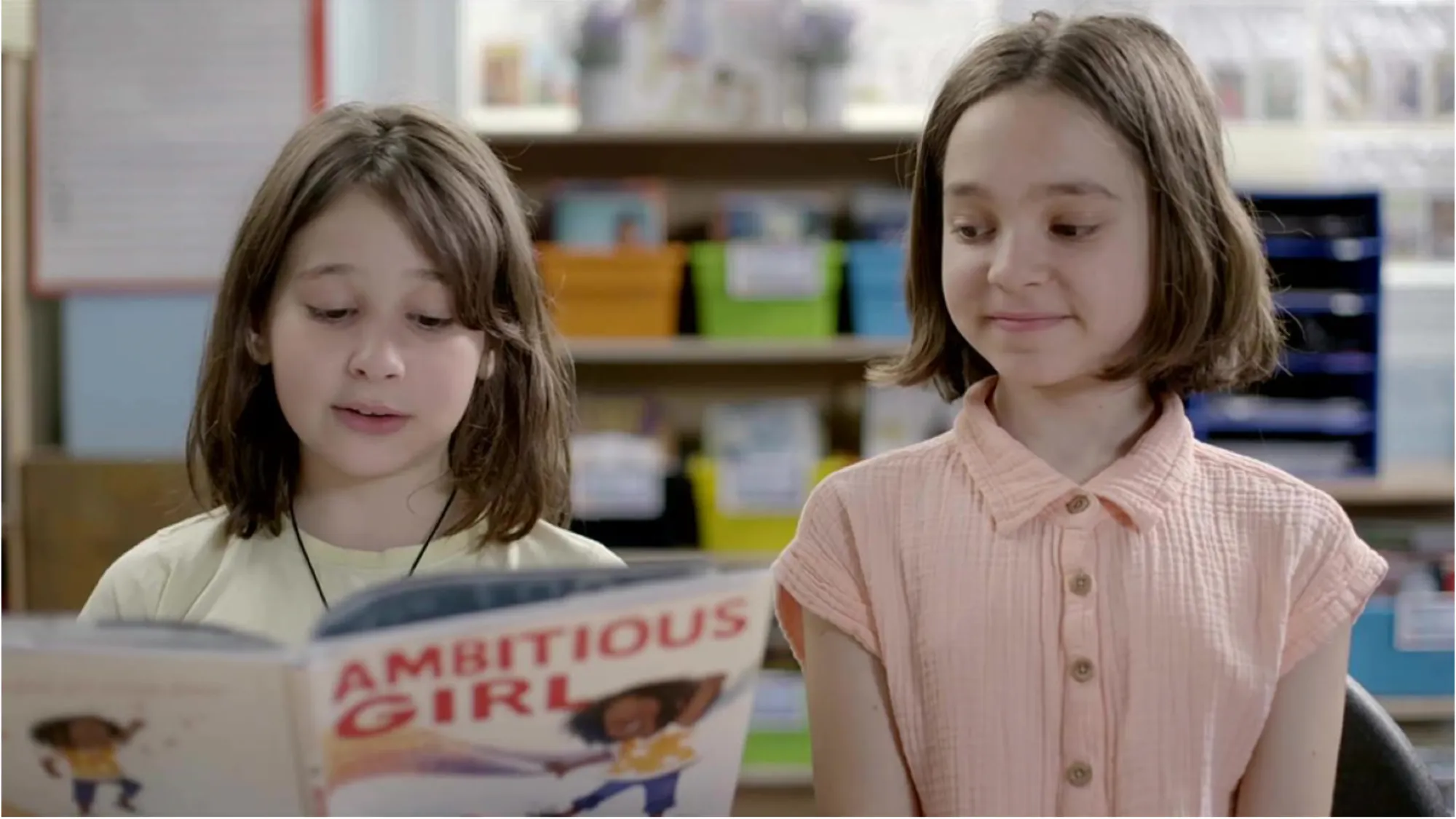
The surprising disappointment of the five Documentary Short nominees is “The ABCs of Book Banning” (⭐ 1/2, streaming on Paramount+), a ham-fisted broadside against book censorship in public libraries and schools – surprising only because it’s directed by Sheila Nevins, who revolutionized the field of non-fiction film in four decades overseeing documentary production at Home Box Office. (Full disclosure: I worked down the hall from her during my years at HBO in the 1980s.) The woman’s a legend and deservedly so; the documentary as it exists today –a commercially viable form of information, entertainment, and persuasion – is in large part her creation or due to her influence. But, oy, this film. Interviews with young children who’ve been handed banned books and then asked to talk about them have the feel of pre-selected testimony – the kids are savvy and articulate but you sense that anyone who didn’t toe the line didn’t make it out of the editing room. The selections chosen from some of the books are disingenuously mild: If you’ve actually read the acclaimed graphic novel “Genderqueer,” for instance, you’d know it’s fine for teenagers but awfully explicit for 9- and 10-year-olds like the ones shown here. “ABCs” is a cheery, condescending scold, and its subtext is that anyone objecting to these books isn’t an even slightly concerned parent but a MAGA goose-stepper ready to torch the bonfire. It doesn’t even preach to the converted all that well – I’m as converted as they get to the idea that reading should be absolutely and totally free, but I found myself looking for holes in the film’s argument out of sheer exasperation.
Did “The ABCs of Book Banning” get nominated because the documentary branch of the Academy feels its director deserves to be honored for all she has done for the medium? Maybe. Is that enough for it to win now that the general voting membership has a say? Possibly. But that would be a disservice to the four other films – and a crime against “The Last Repair Shop.”
Please feel free to leave a comment or add to someone else's.
If you’re not a paying subscriber and would like to sign up for additional postings and to join the discussions — or just help underwrite this enterprise, for which the author would be eternally grateful — here’s how.


